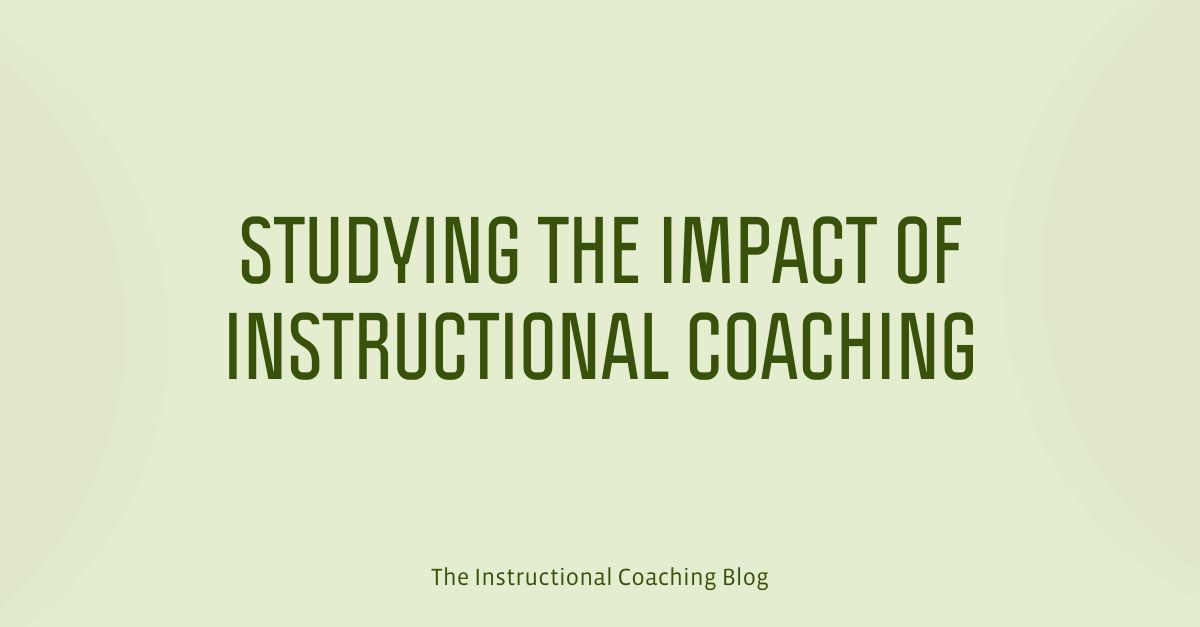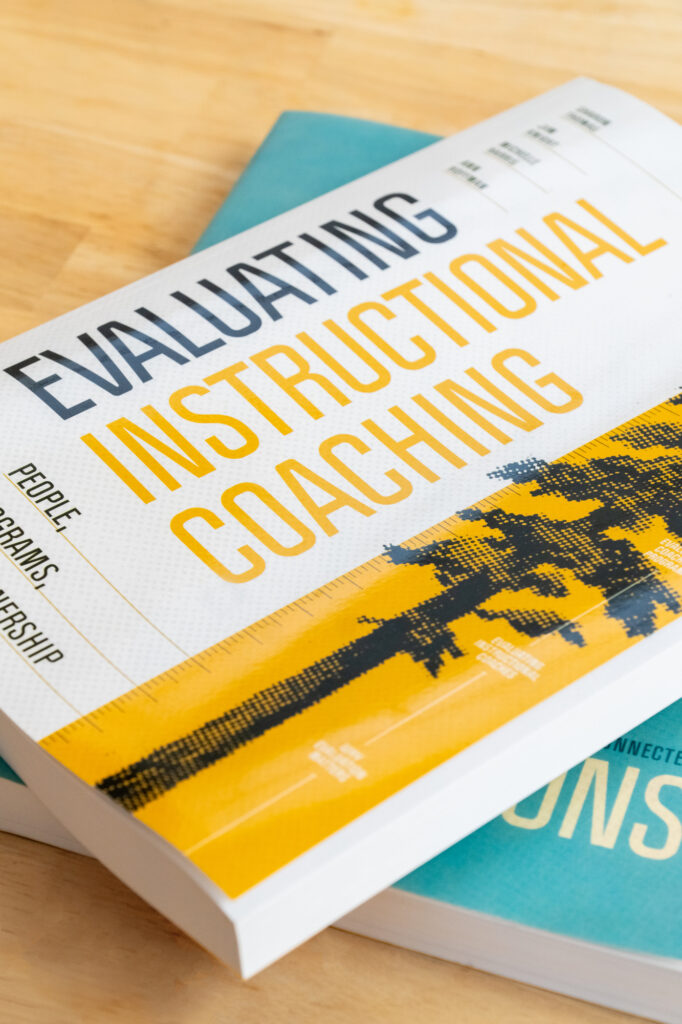In today’s blog post, we’re summarizing a study that measured the impact instructional coaching had on whether or not teachers implemented proven practices, and if there was an impact on the quality of teacher implementation of new practices.
The article begins by describing the components of coaching, and states that instructional coaches employ seven practices:
- Enrolling the teacher
- Engaging in collaborative planning
- Modeling the lesson
- Meeting for teacher directed post-conferencing
- Observing the lesson taught by the teacher
- Collaboratively exploring the data
- Providing continuing support.
A theoretical framework (partnership approach) ties these components together, and the article describes the seven principles that make up coaching practices:
- Equality
- Choice
- Voice
- Dialogue
- Reflection
- Praxis
- Reciprocity
The mixed methods study from this article aimed to investigate how the teachers’ use of the new practice could be encouraged through instructional coaching; determine the effects on quality of use of the new techniques when supported by instructional coaching, and; find out if the effects of instructional coaching continue after instructional coaching supports are terminated.
In total, 50 teachers who had not used the Unit Organizer recently, or at all, participated. The study took place in six middle schools and two high schools, “in an urban school district with an ethnically diverse student population of approximately 14,000 in the Midwestern United States.”
The materials used for the study included two major resources:
- Unit Organizer, which is a routine from the Content Enhancement Series developed at the University of Kansas Center for Research on Learning. There is a sample for the Unit Organizer included at the end of the article, and essentially it is a graphic organizer of content to be covered in a unit.
- An observation instrument, which “was developed by the researchers to systematically determine whether teachers implemented the teaching routine and to measure the quality of teachers’ use of the new teaching routine.”
The study used recordings to ensure intervention fidelity of coaching, and included semistructured interviews.
The results of the study were examined using a two-way contingency analysis measuring any difference between teachers who had only attended a workshop as compared to those who also received coaching support after a workshop. “Teachers in the workshop only condition (M = 1.08, SD = 1.18) on the average used the teaching routine at a lower quality than those in the coaching support condition.” Semistructured interviews uncovered a similar result, “Teachers who were supported by instructional coaching reported that they continued to use the new teaching practices during the delay more frequently (15 of 22) than did teachers who attended the workshop only (3 of 17).”
As a discussion, the article concludes that teachers who receive post-workshop coaching support not only used the teaching routine more often than teachers who did not receive continued support, but that their implementation was of high quality. Though some limitations and directions for future research are examined in the article, ultimately, “this study suggests that instructional coaching will increase the likelihood that teachers adopt new teaching practices.”
Download the entire study (PDF):
Studying the Impact of Instructional Coaching (2009)
Learn how PD follow-up increases the likelihood of success:
Embedded Coaching for Deeper Learning
Check out ICG’s current listing of workshops:
Virtual PD for instructional coaches, administrators, and teachers





























